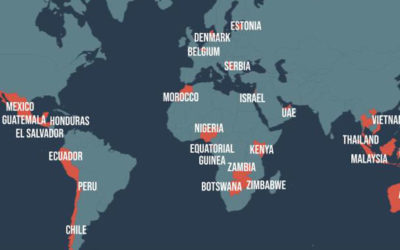By Levi Kabwato
The 2019 tripartite elections and 2020 presidential elections in Malawi were defining moments in the country’s history. For the first time, a court annulled election results and ordered a rerun. Only in Kenya had this happened before. Marred by irregularities, incompetence and injustice, the 2019 election results, which kept incumbent Peter Mutharika in power, were challenged first on the ballot itself, then in the streets and finally in the courts, which then ordered a fresh presidential poll.
Between May 2019 and June 2020, Malawians learnt of numerous attempts to subvert the electoral popular will, arrogance and defiance of the Malawi Electoral Commission (MEC), the strength of the Judiciary in the face of threats and political interference and the potency of their own strength as citizens.
Media – the proverbial Fourth and Fifth Estate – were kept busy, and in an environment of rapidly increasing polarity and volatility, fulfilled the mandate of keeping the nation informed while yet other media attempted to manipulate information and misinform.
The critical markers of how much progress Malawi has made in its young democracy were: citizens’ months-long protest action; judiciary independence, including granting of access for live nationwide broadcasts of court proceedings (open justice); evolution of technology tools to monitor elections (election situation room); a relatively free media, with attendant benefits of investigative journalism. To properly analyse the importance of the latter and its relationship to elections and political change, it is important to contextualise the evolution of media in Malawi since independence.
1964 – the making of un-Freedom
6 July 1964 – Independence. Yet, the promise of the moment soon disappeared and in its place, the pseudo-nationalist politics of President Hastings Kamuzu Banda unfolded. Jail, torture, fear, death and poverty were normalised for three (3) decades. Banda’s reign – exercised through the logic of the one-party State – was the re-making of un-Freedom in the colonial aftermath. In Malawi, therefore, the primary assault was on the right to freedom of expression. Media were tightly-controlled, speech was monitored and mistrust was sowed amongst citizens, thanks to a not-so sophisticated but highly-effective spy network. The result: threatened journalists, jailed academics, disappeared political activists and fearful citizens.
Banda acquired Blantyre Print and Publishing Company (now Times Media Group), publishers of Malawi’s oldest newspaper titles – The Daily Times and Malawi News. All this while he exercised control over the Malawi Broadcasting Corporation (MBC) as well as the Malawi News Agency (MANA), the country’s largest news network. The effects of this ‘totalitarian’ control of the mediascape shaped and influenced the organisation and editorial approaches of the media in Malawi in the early 1990s. As media in Malawi evolve, they are continuously tasked – wittingly or unwittingly – with evaluating their relationship with the State, which is often conflated with the ruling party of the day.
1994–2020: whirlwinds of change, Politics and Politricks
In 1994, Malawi was caught up in the proverbial ‘winds of change’ which swept across Africa and other parts of the global South from the late 1980s to mid-1990s. By this time, the logic of the one-party state was no longer holding, as appetite for multi-party democracy increased. Caught up in the resistance, open defiance aided by citizens’ expanding access to media and information, Banda’s dictatorship collapsed. Thus arrived the era of multiparty politics, logically followed by other tenets of (neo)-liberalism – expanded rights, media pluralism, privatisation and severe under-investment in public goods. Bakili Muluzi became president, sponsored by the United Democratic Front (UDF), which had popular support.
At the end of his constitutional two-terms in office, Muluzi decided to run for a third, a clear attempt at reversing the 1994 gains. Resistance to this bid was organised by civic and political movements, mainly students, religious, other groups and political parties. The media, too, exposed the machinations while spotlighting and amplifying pro-democracy voices and narratives. Muluzi’s way of getting around the defeated bid was to flout intra-party processes and bring in an outsider, Bingu wa Mutharika. The 2004 election that brought Mutharika into power remains one of the most heavily contested and violent elections in Malawi. So much was the violence that the metaphor of the moment is the killing of nine year-old Epiphania Bonjesi, killed by a ‘stray’ bullet fired by police during a clampdown on protest action.
Like Muluzi before him, Mutharika flouted UDF’s internal processes, resigned from the party and formed the Democratic Progressive Party (DPP). Towards the end of his two-terms, and consistent with the aspiration of sitting Malawian presidents to manipulate succession processes, Bingu brought in his brother, Peter, also an outsider. Unfortunately, he (Bingu) did not live to see this plan come to fruition as he succumbed to a heart attack. Immediate attempts by the DPP to see through their succession plan were thwarted by the constitution, military, civic organisations and media, the latter having exposed the circumstances around Bingu’s death as well as the intention to subvert constitutional order. Vice president, Joyce Banda (no relation to Kamuzu), having been ostracised by the DPP to make way for the younger Mutharika, became president in 2012 and would lead Malawi until the next election in 2014, which she lost to Peter Mutharika.
In 2019, yet another heavily-contested election saw Mutharika win a second term in office. Much like in 2004, however, citizen-led protests broke out across the country citing poll irregularities. The High Court agreed with a challenge brought forward by two (2) of the leading opposition candidates, Lazarus Chakwera from the Malawi Congress Party (MCP) and Saulos Chilima from the United Transformation Movement (UTM). Once the Supreme Court of Appeal upheld the decision of the lower court to nullify the 2019 elections, both Chakwera and Chilima, together with other political parties formed an electoral coalition, Tonse Alliance, to contest the 2020 presidential elections, which they won.
Corruption: the abscess that hurts the nation
It was during Joyce Banda’s term that one of the biggest corruption scandals in the country was exposed. Now commonly-referred to as ‘Cashgate’, this scandal revealed the extent to which various people in government were manipulating the Integrated Financial Management Information System (IFMIS). Simply put, large cheques were being issued for services that were never rendered. Once the cheques had been honoured by the Reserve Bank of Malawi (RBM) and other financial institutions, they would then be deleted from the system. Whilst the IFMIS abuse was exposed during Joyce Banda’s term, most data point to an established and elaborate practice of the same in preceding administrations. Such has been the pervasiveness of corruption in Malawi that all former presidents are implicated in numerous scandals, all amounting to billions of Kwacha.
Media: the glue holding Democracy together
In the immediate aftermath of Malawi’s historic political transition in 1994, various media entities were established. However, only a few have enjoyed longevity, especially in print. Broadcast media have consistently grown, thanks to a friendly policy environment. However, most constraints in this sector are a result of inadequate resourcing (human, technical and financial). This is evident in the limited capacity of these media to effectively meet their mandates, especially for community media which, despite being critical to the sustainability of democracy, face perpetual threats of shutting down because of under-resourcing.
The media have also played a critical role in exposing machinations to subvert popular will. Kamuzu Banda’s dictatorship eventually collapsed after numerous atrocities were exposed by independent media. As mentioned above, Muluzi’s third-term bid failed largely because of push-backs by the media. Both Mutharikas were routinely exposed in the media for wrongdoing. And Joyce Banda’s short presidency was also subject to powerful investigative reporting, which unearthed wrongdoing, especially the Cashgate scandal.
Despite early shifts towards liberalising the media space, Muluzi’s government used regulatory bodies, especially the Malawi Communications Regulatory Authority (MACRA) to frustrate the opening up of space to broadcast media through, among other things, delays in the issuance of licences. Beyond this, MACRA has also been instrumentalised in blocking and effectively censoring broadcast media, including community media. This usually occurs during electoral periods, with vague regulations and laws being used to prevent citizens’ access to information. State-run broadcast media, with their history of continued interference and manipulation by the government of the day always seem to get away with similar, and in most cases worse, infractions. In a country with low literacy levels, this has huge implications for the type of information most citizens have access to.
Investigative Journalism, Institutions and Critical Masses
If vibrant media are critical to sustaining democracy then, in Malawi, this has been proved true. For the greater part of the country’s young democratic life, media advocacy groups fought for the enactment of an Access to Information law. This became a reality in 2020, over a decade after initial attempts started. From 1994, Malawian media have faced numerous threats – journalists coming under fire, withdrawn advertising and lawsuits. The resilience and resolve demonstrated by the privately-run media ahead, during and after both the 2019 and 2020 presidential elections is a result of their constant evolution since 1994. It is not something that was cultivated overnight. This sequence also follows the elevated nature of investigative journalism across most newsrooms. This area, which requires significant resources, time and commitment was largely neglected for many years as most media outlets spread resources in an effort to answer ever-present sustainability questions.
Significantly, investigative journalism in Malawi has also benefited from the growing strength of other institutions – Judiciary, Security, oversight bodies, civil society and an informed citizenry. In 2014, particularly, the introduction of the multi-stakeholder elections monitoring and reporting platform – the Election Situation Room (ESR) – opened up various pathways and tools for generating, processing and distributing data that enhanced the transparency and integrity of elections. It is some of this data that investigative journalists used to expose widespread irregularities, and it is also data that found its way into the electoral petitions submitted as evidence to challenge the 2019 vote outcome.
The period 2019-2020 especially revealed the importance of a critical mass in confronting institutions that fall victim to political capture. In this case, targeting MEC, resulted in its transformation with the implication that the subsequent election that was held was largely free, fair and credible. This ‘confrontation’ was consistent with the mass action that brought an end to Kamuzu Banda’s 30-year dictatorship; pushed back against Muluzi’s third term bid; resisted Bungu wa Mutharika’s authoritarianism; pushed back against Peter Mutharika’s attempt at subverting constitutional order; sought answers for Joyce Banda’s ‘Cashgate’ scandal; and demanded the nullification of 2019 presidential elections.
The age-old adage – “informed citizens make informed choices” – is likely to ring true for Malawi for years to come, as long as critical investments are made in the media, and if the resolve of investigative journalists persists.
Levi Kabwato is a journalist, commentator and thought leader. He is also a published author.





